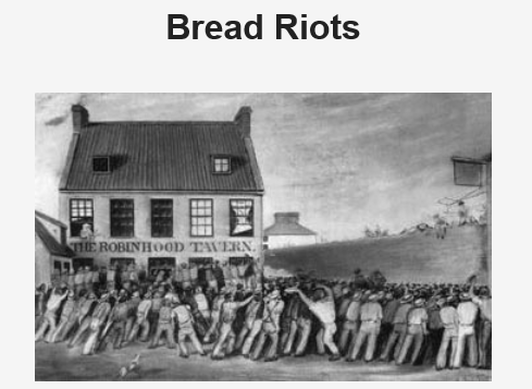| TradeWithMe |
guest comments
Guest Comments July 12, 2013
(Larry Levin from Trading Advantage)

Considering Thursday’s Groundhog Day market action (we’ve seen this Fed rally before, and yes, we will see it again), my focus shifts to the global economy.
Whatever the other inciting factors may be, a precarious economy is at the root of most countrywide protests. Egypt is no exception and the situation may be dire. Two and a half years of political turmoil have caused a deep economic crisis in Egypt, scaring away investors and tourists, draining foreign currency reserves and making it difficult to maintain imports of food and fuel.
Egypt is the world's largest importer of wheat, half of which it distributes to its 84 million people in the form of heavily subsidized saucer-sized flat loaves of bread, which sell for less than 1 U.S. cent.
According to a story in Bloomberg:
Egypt has less than two months' supply of imported wheat left in its stocks, ousted President Mohamed Mursi's minister of supplies said, revealing a shortage more acute than previously disclosed.
Speaking to Reuters near midnight in a tent at a vigil where thousands of Mursi supporters are protesting against the Islamist president's removal, former Minister of Supplies Bassem Ouda said the state had just 500,000 metric tons of imported wheat left. Egypt usually imports about 10 million metric tons a year.
read has long been a sensitive issue in Egypt. Former President Hosni Mubarak faced unrest in 2008 when the rising price of wheat caused shortages.
The United Nations Food and Agriculture Organization (FAO) said on Thursday that civil unrest and dwindling foreign exchange reserves meant Egypt could have serious food security concerns. Its import requirements next year would be equal to this year, it said.
Since Mursi was toppled last week, the United Arab Emirates, Saudi Arabia and Kuwait have promised $12 billion in cash, loans and fuel, which economists say buys Cairo several months of breathing room to fix its finances.
We will keep watch on this volatile situation. The global impacts could be significant. Trade well and follow the trend, not the perma-bull OR perma-bear “experts.”
Whatever the other inciting factors may be, a precarious economy is at the root of most countrywide protests. Egypt is no exception and the situation may be dire. Two and a half years of political turmoil have caused a deep economic crisis in Egypt, scaring away investors and tourists, draining foreign currency reserves and making it difficult to maintain imports of food and fuel.
Egypt is the world's largest importer of wheat, half of which it distributes to its 84 million people in the form of heavily subsidized saucer-sized flat loaves of bread, which sell for less than 1 U.S. cent.
According to a story in Bloomberg:
Egypt has less than two months' supply of imported wheat left in its stocks, ousted President Mohamed Mursi's minister of supplies said, revealing a shortage more acute than previously disclosed.
Speaking to Reuters near midnight in a tent at a vigil where thousands of Mursi supporters are protesting against the Islamist president's removal, former Minister of Supplies Bassem Ouda said the state had just 500,000 metric tons of imported wheat left. Egypt usually imports about 10 million metric tons a year.
read has long been a sensitive issue in Egypt. Former President Hosni Mubarak faced unrest in 2008 when the rising price of wheat caused shortages.
The United Nations Food and Agriculture Organization (FAO) said on Thursday that civil unrest and dwindling foreign exchange reserves meant Egypt could have serious food security concerns. Its import requirements next year would be equal to this year, it said.
Since Mursi was toppled last week, the United Arab Emirates, Saudi Arabia and Kuwait have promised $12 billion in cash, loans and fuel, which economists say buys Cairo several months of breathing room to fix its finances.
We will keep watch on this volatile situation. The global impacts could be significant. Trade well and follow the trend, not the perma-bull OR perma-bear “experts.”
Post your comments in the forum here (click the link) or on Facebook http://www.facebook.com/groups/120783744677307/
|
Want more information ? Get in touch with us through the contact form : (click here)
|
|